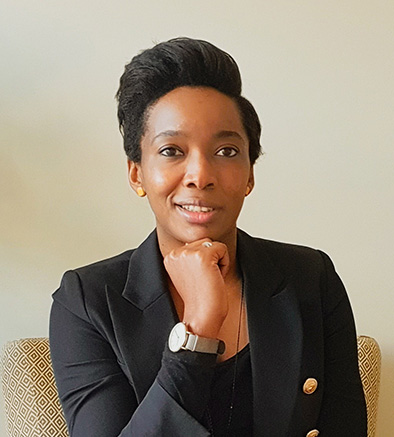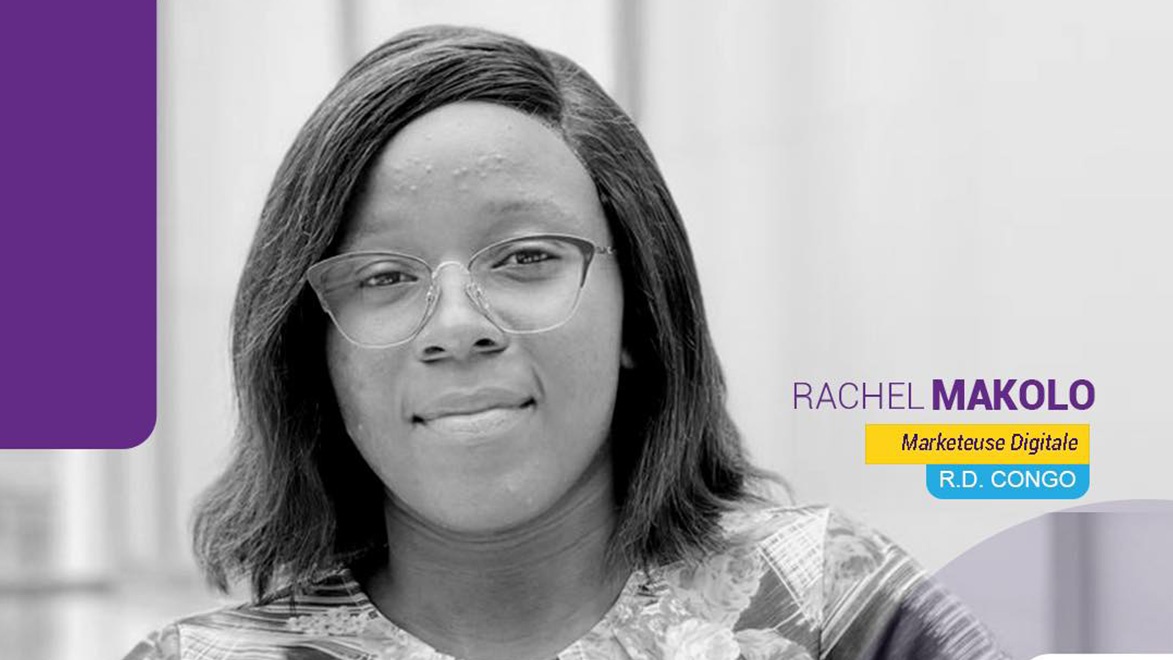Promoting Women’s Entrepreneurship in the DRC

With SIDONIE LATERE,
Director and founder of Kobo-Hub
What are the challenges facing women’s entrepreneurship in the DRC?
The DRC economy is largely informal. The challenge is to give legal recognition to the activity of those who participate in that informal economy. Women work mainly in agriculture: they are the ones who grow crops, harvest, and go to the market. These activities earn them small incomes, but they’re not businesses. Our role is to help them change in that direction.
As an incubator director, I’ve found that we get faster results when we support women: as soon as we meet their needs and they see how to develop their income, they’re very diligent.

What are the obstacles to female entrepreneurship in the DRC?
The main obstacle is sociocultural. The DRC is a country on a continental scale, with nearly 100 million inhabitants and huge disparities between cities and countryside. In Kinshasa, many women now have access to education and professional careers. But elsewhere, families continue to send boys to school and send girls off to marry. By becoming entrepreneurs, they empower themselves and help empower their own daughters. An educated woman who manages to generate stable income through her business is a woman who changes her role in her family and in society.
How does the Kobo-Hub incubator support women’s entrepreneurship?
Kobo-Hub supports business projects in three sectors: agribusiness, creative and cultural industries, and new technologies. The project owners are between 18 and 35 years old—we’ve supported 34 in five years, including 12 women. Our long-term goal is to achieve gender parity. There are many women candidates in agribusiness, but they’re still a minority in the other two sectors. We want them to take their rightful place: this is why we organize calls for projects targeting women only.
To reverse the trend, it’s also important to highlight the success stories of women entrepreneurs who prove that success is possible, whether they’re married or not.
Can you give us an example of a success story?
Kobo-Hub supported a young woman who had begun an agribusiness activity during her studies. Her company, which processes cassava into chikwangue, has become a model enterprise. At age 30, she now makes a living from her company and sets a positive example for women.
What specific support do you offer?
We offer two types of support. The main difficulty for entrepreneurs in the DRC is access to the material resources they need. Being an entrepreneur myself, I experienced these problems—the instability of the electricity grid in Kinshasa is one of them. That’s why we created 350 square meters of office space in the city center, where entrepreneurs can work every day, with access to electricity, computers, Internet, meeting rooms, and more.
The second aspect of our support is training. In the DRC, most entrepreneurs engage in a sector in which they haven’t been trained. They thus need us to develop their skills, on aspects ranging from HR to legal and financial management and marketing. Kobo-Hub provides them with a one-year support package that covers all these aspects. In the end, their business must be able to generate twice as much income as it did at the beginning.
Since 2022, Expertise France has been implementing the “Pour Elles” project in the DRC with AFD funding. What do you expect from this project?
This project is a good response to the initial problem. The goal is to offer programs specifically to women, primarily in rural areas, so that they can shift from an informal activity where they earn a few hundred dollars a month to a business that earns double or triple that. “Pour Elles” will also enable women to get training without financial worries, thanks to financial support during their studies. That is important.
Finally, women need specific support, with a psychological dimension and personal development. It’s essential that the trainers understand the situation of women, their potential, their limitations, and the sociocultural differences between the city and rural areas… “Pour Elles” will train other incubators and stakeholders to support women, to achieve better results.
Interview conducted in March 2023
See also






